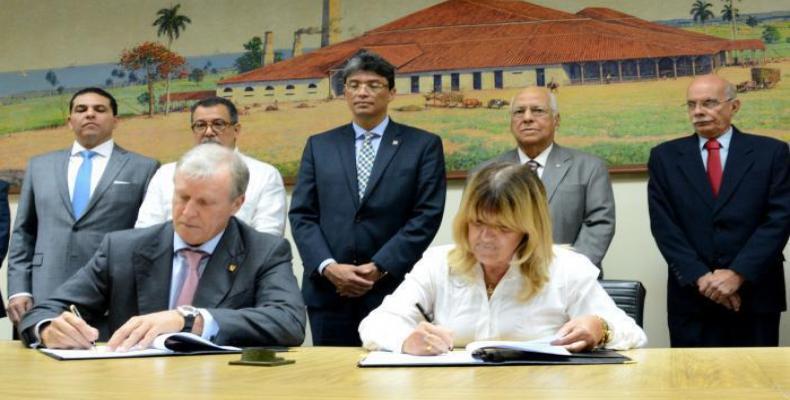Havana, August 29 (RHC-Granma)-- The Central Bank of Cuba (BCC) has become the newest member of the Central American Bank for Economic Integration (CABEI) after representatives from both institutions signed the CABEI’s Constitutive Agreement in Havana on Monday.
The signing, which took place at the BCC headquarters, was presided by CABEI Executive President, Nick Rischbieth and President of the BCC Irma Martínez, in the presence of Ricardo Cabrisas, a vice president of Cuba’s Council of Ministers and Minister of Economy and Planning.
With the signing of the agreement, Cuba officially became a member of this important multi-lateral regional institution, which will enable the country to further strengthen its already vast network of relations with Central American nations, and contribute toward supporting economic, social development, and integration projects financed by the institution.
According to the official CABEI website, the bloc was founded in 1960 “to promote the economic integration and balanced economic and social development of its founding countries… provides financing to the public and private sectors, specialized in attracting and channeling external resources, complementary and additional to those provided by other sources, to promote investment and development opportunities in its sphere of influence.”
CABEI founding members are Guatemala, El Salvador, Honduras, Nicaragua, and Costa Rica, while its non-regional members include Mexico, the Republic of China (Taiwan), Argentina, Colombia, and Spain. Subsequently, Panama and the Dominican Republic joined as non-founding regional members, and Belize also joined as a non-founding beneficiary member.
The Central American Bank for Economic Integration specializes in attracting and providing financing for sectors such as production; energy; agriculture; rural, urban and human development; as well as social infrastructure.


